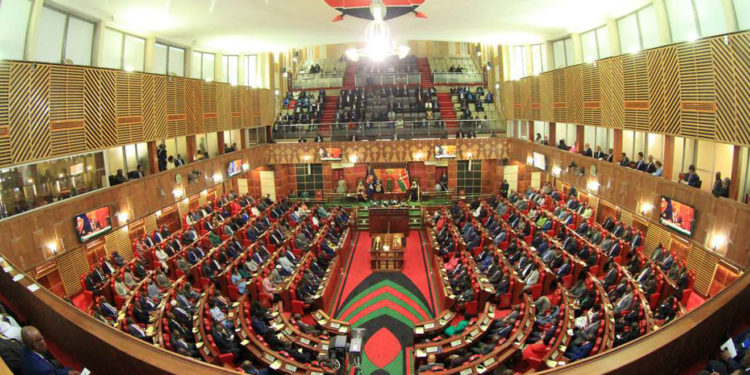Kenya’s Parliament is exploring the inclusion of social media feedback in the national budget-making process, aiming to modernize public participation. This move, which could revolutionize how Kenyans engage in shaping the country’s economic future, was confirmed by the National Assembly Finance and National Planning Committee Chairperson, Kimani Kuria, in an interview on April 8.
Kuria expressed the need to move away from traditional methods of public consultation, such as written memoranda, emails, and scheduled forums, which no longer reflect how most citizens communicate. “We should consider feedback from social media platforms as legitimate public participation,” he said, emphasizing that platforms like WhatsApp, TikTok, and YouTube are now central to public discourse.
In particular, Kuria highlighted the growing role of community WhatsApp groups, TikTok videos, and online comments in discussions about taxation, spending, and economic priorities. “We’re talking about community WhatsApp groups, TikTok conversations, and even YouTube forums where people are expressing real concerns,” he noted. This recognition of digital platforms as important venues for public feedback marks a shift towards a more inclusive and accessible form of engagement.
To facilitate this change, the Finance Committee is working on a digital public participation framework that would allow Kenyans to share their views securely through approved online platforms. Kuria also pointed out the importance of tracking trending topics on social media and verifying digital submissions through user authentication to ensure credibility and accuracy.
Kuria stressed that viral reactions, such as a video expressing public outrage over a tax proposal, should not be overlooked. “If a video goes viral showing public anger over a tax proposal, should we really ignore that?” he asked, advocating for social media feedback to be treated with the same respect as formal submissions.
By embracing digital participation, Kuria believes Parliament can foster more transparency and reduce tensions by engaging the public early in the budget-making process. “If people feel heard from the beginning, there will be less resistance and more meaningful dialogue,” he concluded.












